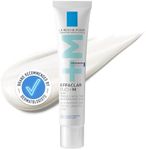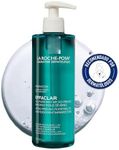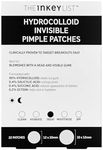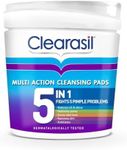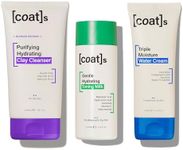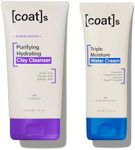Buying Guide for the Best Acne Treatment For Teens
Choosing the right acne treatment for teens can be a crucial step in managing skin health and boosting confidence. Acne is a common issue during teenage years due to hormonal changes, and selecting the right treatment involves understanding the different types of products available and how they work. It's important to consider the severity of the acne, skin type, and any potential sensitivities or allergies. Consulting with a dermatologist can also provide personalized advice. The goal is to find a treatment that effectively reduces acne while being gentle on the skin.Active IngredientsActive ingredients are the components in acne treatments that work to reduce acne. Common active ingredients include benzoyl peroxide, salicylic acid, and retinoids. Benzoyl peroxide is effective for killing bacteria and reducing inflammation, making it suitable for moderate to severe acne. Salicylic acid helps to unclog pores and is often used for mild acne. Retinoids promote cell turnover and can be effective for both acne and acne scars. When choosing a treatment, consider the type and severity of acne. For mild acne, salicylic acid might be sufficient, while more severe cases might benefit from benzoyl peroxide or retinoids. Always start with a lower concentration to see how your skin reacts.
Formulation TypeAcne treatments come in various formulations such as creams, gels, lotions, and cleansers. Creams and lotions are generally more moisturizing and may be better for dry or sensitive skin. Gels are often alcohol-based and can be more drying, making them suitable for oily skin. Cleansers are used to wash the face and can be a good option for those who prefer a simple routine. When selecting a formulation, consider your skin type and how the product will fit into your daily skincare routine. For example, if you have oily skin, a gel might be more appropriate, whereas dry skin might benefit from a cream.
Skin Type CompatibilityUnderstanding your skin type is crucial when selecting an acne treatment. Skin types generally fall into categories such as oily, dry, combination, or sensitive. Oily skin may benefit from treatments that help control excess oil, such as those containing salicylic acid or benzoyl peroxide. Dry skin might require a more hydrating treatment to prevent further dryness and irritation. Sensitive skin needs gentle formulations to avoid irritation, so look for products labeled as hypoallergenic or designed for sensitive skin. Knowing your skin type can help you choose a product that will be effective without causing additional skin issues.
Frequency of UseThe frequency with which you use an acne treatment can affect its effectiveness and your skin's health. Some treatments are designed for daily use, while others might be used less frequently to prevent irritation. For instance, benzoyl peroxide and retinoids can be potent and may initially cause dryness or peeling, so they might be used every other day or as directed by a dermatologist. Salicylic acid is often gentle enough for daily use. Consider your skin's tolerance and start with a lower frequency, gradually increasing as your skin adjusts. Always follow the product's instructions and consult with a dermatologist if unsure.
Potential Side EffectsAcne treatments can sometimes cause side effects such as dryness, redness, or irritation, especially when first starting a new product. It's important to be aware of these potential reactions and to monitor your skin's response. If you experience severe irritation, it may be necessary to reduce the frequency of use or switch to a different product. Some treatments, like retinoids, can increase sensitivity to sunlight, so using sunscreen is recommended. Understanding potential side effects can help you manage them effectively and choose a treatment that balances efficacy with comfort.

